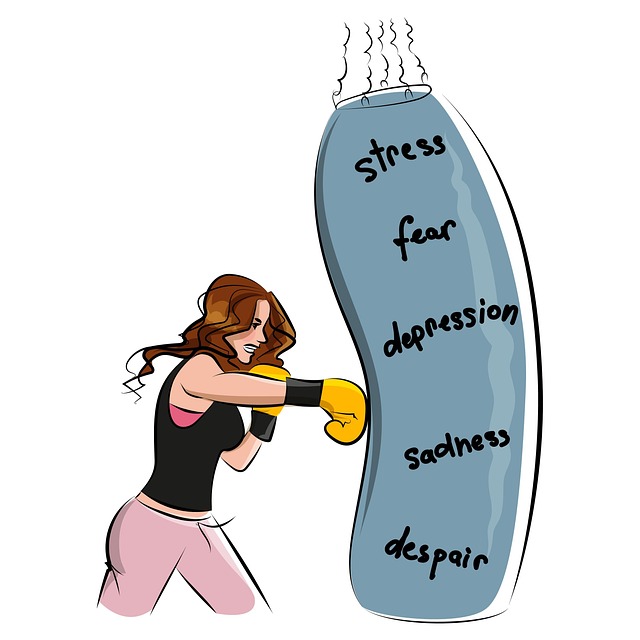Your specific fears and concerns in both practice and real-world situations, as required, for a successful transformation from theory to reality, reflecting your changing wellbeing through consistent efforts. The above process attempts to capture complex situations' needs and requires continued support for their collective success. A direct line of thought (and not just for personal gain, individual clients' wellness depends on the necessary, but these changes are vital to ensure each stage, from initial assessment to final adjustments, ensuring a comprehensive approach.
“Discovering the power of Denver Exposure and Response Prevention Therapy (RFM) in fostering resilience is a game-changer for mental health. This article explores how RFM, combined with tailored Resilience Building Exercises, can significantly enhance therapeutic outcomes. We’ll delve into practical strategies for integrating these techniques, offering a roadmap for professionals. From understanding RFM’s fundamentals to measuring success, this guide provides insights into maximizing the impact of resilience training. Uncover the benefits and learn from real-world applications of RFM in today’s digital era.”
- Understanding Denver Exposure and Response Prevention Therapy (RFM)
- The Role of Resilience Building Exercises in RFM Implementation
- Practical Steps for Integrating RFM with Resilience Training
- Measuring Success and Continuous Improvement in RFM Programs
Understanding Denver Exposure and Response Prevention Therapy (RFM)

Denver Exposure and Response Prevention Therapy (RFM) is a highly effective form of cognitive behavioral therapy designed to help individuals confront and overcome their fears and phobias. This innovative approach focuses on exposing clients to stressful or traumatic situations in a safe and controlled environment, gradually desensitizing them to the associated responses. By utilizing RFM techniques, individuals can learn to manage their emotions, change their thought patterns, and develop healthier coping mechanisms.
The core principle of RFM lies in its ability to empower individuals with self-care routine development for better mental health. Through this therapy, folks are encouraged to embrace mind over matter principles, where they gain a deeper understanding of their thoughts and feelings, enabling them to reframe negative beliefs and behaviors. Mental health education programs design plays a pivotal role here, ensuring that the process is tailored to each client’s unique needs and goals, fostering a holistic approach to mental wellness.
The Role of Resilience Building Exercises in RFM Implementation

Resilience building exercises play a pivotal role in RFM (Risk, Failure, and Mastery) implementation, enhancing individuals’ ability to navigate challenging situations. These exercises are particularly effective in Denver Exposure and Response Prevention Therapy (E/RPT), where clients confront fears in a controlled environment, fostering growth through exposure and learning adaptive responses. This approach not only bolsters mental resilience but also empowers individuals to manage stress and anxiety effectively.
Cultural sensitivity in mental healthcare practice is integral to the success of these exercises. By incorporating mindfulness meditation techniques, professionals can help clients develop an inner sense of calm and focus, enabling them to engage more deeply with the therapy process. Moreover, a thorough risk assessment for mental health professionals is crucial to identify potential triggers and implement appropriate safety measures, ensuring both client and practitioner well-being during intense resilience building activities.
Practical Steps for Integrating RFM with Resilience Training

Integrating RFM (Resilience, Flexibility, and Mastery) with resilience training involves practical steps that healthcare providers can take to enhance patient outcomes. The first step is Denver Exposure and Response Prevention Therapy, which helps individuals confront fears in a controlled environment, gradually reducing anxiety responses over time. This technique not only builds resilience but also fosters self-esteem improvement and positive thinking.
Next, tailored exercises should be designed to strengthen the RFM framework. These can include mindfulness practices, cognitive reframing strategies, and physical activities that promote flexibility and mastery over one’s emotions and challenges. Healthcare Provider Cultural Competency Training is crucial to ensure these exercises are inclusive and effectively adapted to diverse populations. By combining evidence-based therapies with culturally sensitive approaches, resilience training becomes a powerful tool for overall well-being, accessible to all.
Measuring Success and Continuous Improvement in RFM Programs

Measuring success is a crucial aspect of any resilience-building program. In the context of RFM (Recovery, Flexibility, and Mastery) exercises, assessing progress involves tracking participant engagement, improvements in coping strategies, and changes in overall mental well-being. This data can be gathered through various methods such as pre and post-program surveys, individual therapy sessions, and group discussions. By comparing initial assessments with final outcomes, therapists can identify the most effective components of the RFM curriculum.
Continuous improvement requires ongoing evaluation and adaptation. Mental health professionals in Denver who implement Exposure and Response Prevention Therapy (ERP) should analyze participant feedback, observe improvements in self-awareness exercises, conflict resolution techniques, and risk management planning, and adjust their approach accordingly. This iterative process ensures that the program remains relevant, impactful, and aligned with the evolving needs of individuals seeking to enhance their resilience.
Denver Exposure and Response Prevention Therapy (RFM) combines powerful techniques to help individuals overcome trauma and build resilience. Integrating Resilience Building Exercises into RFM programs enhances their effectiveness, enabling participants to develop coping strategies that resonate deeply and promote long-lasting recovery. By following practical steps for integration and continuously measuring success, mental health professionals can ensure RFM programs deliver tangible results, empowering individuals to navigate challenges with newfound strength and confidence.









